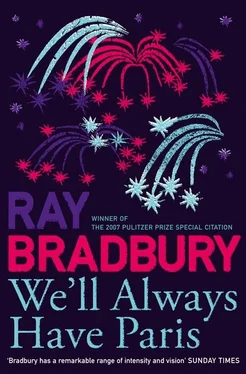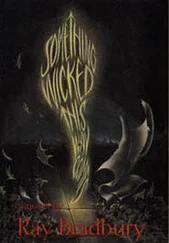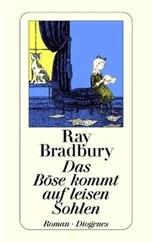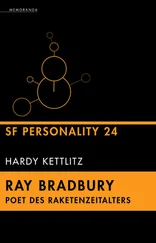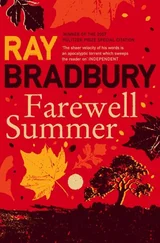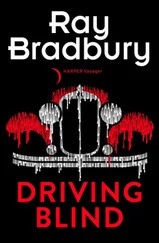‘No, of course not.’
‘Tell me, then, what have I done? Point to it, lay a hand on it. My dogs, these are evil, eh? These birds, their song is dreadful, eh? My phonograph – I suppose that’s bad, too, eh? All right, put me in jail, throw away the key. You will not separate us.’
The music rose to a great crescendo. He sang along with it:
Tiffa-nee! Hear my plea!
Can’t you smile; sit awhile, be my friend?
The dogs leaped about, barking.
Mr Tiffany drove away in his car.
Pietro felt a pain in his chest. Still grinning, he stopped dancing. The geese rushed in and pecked gently at his shoes as he stood, bent down, holding his chest.
At lunchtime, Pietro opened a quart of homemade Hungarian goulash and refreshed himself. He paused and touched his chest, but the familiar pain had vanished. Finishing his meal, he went to gaze over the high wooden fence in the backyard.
There she was! There was Mrs Gutierrez, very fat, and as loud as a jukebox, talking to her neighbors on the other side of the lot.
‘Lovely lady!’ called Mr Massinello Pietro. ‘Tonight I go to jail! Your war is fought and won. I give you my saber, my heart, my soul!’
Mrs Gutierrez came ponderously across the dirt yard. ‘What?’ she said, as if she couldn’t see or hear him.
‘You told the police, the police told me , and I laughed!’ His hand flirted on the air, two fingers wiggling. ‘I hope you will be happy!’
‘I didn’t call no police!’ she said indignantly.
‘Ah, Mrs Gutierrez, I will write a song for you!’
‘All of them other people must’ve called in,’ she insisted.
‘And when I leave today for jail, I’ll have a present for you.’ He bowed.
‘I tell you it wasn’t me!’ she cried. ‘You and your mealy mouth!’
‘I compliment you,’ he said sincerely. ‘You are a civic-minded citizen. All filth, all noise, all odd things must go.’
‘You, you!’ she shouted. ‘Oh, you !’ She had no more words.
‘I dance for you!’ he sang, and waltzed into the house.
In the late afternoon he put on his red silk bandanna and the huge gold earrings and the red sash and the blue vest with the golden piping. He put on his buckle shoes and tight knee breeches. ‘Come along! One last walk, eh?’ he told his dogs, and out of the shop they went, Pietro carrying the portable phonograph under his arm, wincing with the weight of it, for his stomach and body had been sick for some time and there was something wrong; he couldn’t lift things very easily. The dogs padded on either side of him, the parakeets shrieked wildly on his shoulder. The sun was low, the air cool and settled. He looked at everything as if it was new. He said good evening to everyone, he waved, he saluted.
In a hamburger stand he set the phonograph whirling and scratching out the song on top of a stool. People turned to watch as he dived into the song and came up shining with laughter. He snapped his fingers, dipped his legs, whistled sweetly, eyes closed, as the symphony orchestra soared through Strauss. He made the dogs stand in a row while he danced. He made the parakeets tumble on the floor. He caught the spinning, flashing dimes from the startled but responsive audience.
‘Get the hell out!’ said the hamburger man. ‘What in hell you think this is, the opera?’
‘Thank you, good friends!’ Dogs, music, parakeets, Pietro ran into the night, bells chiming softly.
On a street corner he sang to the sky, to the new stars, and the October moon. A night wind arose. Faces watched smiling from the shadows. Again Pietro winked, smiled, whistled, whirled.
For charity, the poor!
Ah sweet, ah demure!
And he saw all the faces, the looking faces. And he saw the silent houses, with their silent people. And, in his singing, he wondered why he was the last one singing in the world. Why did no one else dance, open mouths, wink, strut, flourish? Why was the world a silent world, silent housed, silent faced? Why were all the people watching people instead of dancing people? Why were they all spectators and only he the performer? What had they forgotten that he always and always remembered? Their houses, small and locked and silent, soundless. His house, his Manger, his shop, different! Filled with squeaks and stirs and mutters of bird sound, filled with feather whisper and murmurings of pad and fur and the sound that animal eyelids make blinking in the dark. His house, ablaze with votive candles and pictures of rising – flying – saints, the glint of medallions. His phonograph circling at midnight, two, three, four in the morning, himself singing, mouth wide, heart open, eyes tight, world shut out; nothing but sound. And here he was now among the houses that locked at nine, slept at ten, wakened only from long silenced hours of slumber in the morn. People in houses, lacking only black wreaths on door fronts.
Sometimes, when he ran by, people remembered for a moment. Sometimes they squeaked a note or two, or tapped their feet, self-consciously, but most of the time the only motion they made to the music was to reach in their pockets for a dime.
Once, thought Pietro, once I had many dimes, many dollars, much land, many houses. And it all went away, and I wept myself into a statue. For a long time I couldn’t move. They killed me dead, taking away and taking away. And I thought, I won’t ever let anyone kill me again. But how? What do I have that I can let people take away without hurting? What can I give that I still keep?
And the answer was, of course, his talent.
My talent! thought Pietro. The more you give away, the better it is, the more you have. Those with talent must mind the world.
He glanced around. The world was full of statues much like he had been once. So many could move no longer, knew no way to even begin to move again in any direction, back, forth, up, down, for life had stung and bit and stunned and beat them to marble silence. So then, if they could not move, someone must move for them. You, Pietro, he thought, must move. And besides, in moving, you don’t look back at what you were or what happened to you or the statue you became. So keep running and keep so busy you can make up for all those with good feet who have forgotten how to run. Run among the self-monuments with bread and flowers. Maybe they will move enough to stoop, touch the flowers, put bread in their dry mouths. And if you shout and sing, they may even talk again someday, and someday fill out the rest of the song with you. Hey! you cry and La! you sing, and dance, and in dancing perhaps their toes may crack and knuckle and bunch and then tap and tremble and someday a long time after, alone in their rooms, because you danced they will dance by themselves in the mirror of their own souls. For remember, once you were chipped out of ice and stone like them, fit for display in a fish-grotto window. But then you shouted and sang at your insides and one of your eyes blinked! Then the other! Then you sighed in a breath and exhaled a great cry of Life! and trembled a finger and shuffled a foot and bounded back into the explosion of life!
Since then, have you ever stopped running?
Never.
Now he ran into a tenement and left white bottles of milk by strange doors. Outside, by a blind beggar on the hurrying street, he carefully placed a folded dollar bill into the lifted cup so quietly that not even the antennae fingers of the old man sensed the tribute. Pietro ran on, thinking, Wine in the cup and he doesn’t know … ha! … but, later, he will drink! And running with his dogs and birds flickering, fluttering his shoulders, bells chiming on his shirt, he put flowers by old Widow Villanazul’s door, and in the street again paused by the warm bakery window.
Читать дальше
